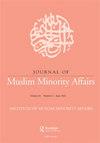Perceptions Regarding Triple Talaq among Literate and Illiterate Muslim Women: A Comparative Study
IF 0.4
0 RELIGION
引用次数: 0
Abstract
Abstract This paper intends to unravel the idea, the history, the theological understanding and the socio-cultural influences on the idea of “Talaq” in general and “Instant Triple Talaq” in particular. The paper also unearths the possibilities of the misuse, misinterpretation and politicization of the concept which have taken place at various historical junctures. At empirical level, the paper attempts to draw the attention toward the perception and opinion of the Muslim women through the structured questionnaire regarding the Instant Triple Talaq and Triple Talaq Act enacted by the Government of India. The study focuses on how the existing power structure in the Muslim community and the deeply rooted cultural practices that in a way were antithetical to the basic Islamic beliefs have shaped the lives of Muslim women in India. The study does not find the Triple Talaq Act passed by Indian parliament as something constructive, rather regards it as interference on part of state institutions into the religious affairs of a particular community. The study finally draws a parallel between the literate and illiterate strata of Muslim women and their perception toward the Triple Talaq Act.识字和文盲穆斯林妇女对三重塔拉克的认知比较研究
摘要本文旨在揭示“塔拉克”的概念、历史、神学理解以及对“即时三重塔拉克”概念的社会文化影响。本文还揭示了在不同的历史节点上对这一概念的误用、误解和政治化的可能性。在实证层面,本文试图通过对印度政府颁布的《即时三塔拉克法》和《三塔拉克法》的结构化问卷调查,引起人们对穆斯林妇女的看法和意见的关注。这项研究的重点是穆斯林社区现有的权力结构和根深蒂固的文化习俗如何在某种程度上与基本的伊斯兰信仰相对立,从而塑造了印度穆斯林妇女的生活。该研究没有发现印度议会通过的《三重塔拉克法》具有建设性,而是认为它是部分国家机构对特定社区宗教事务的干涉。这项研究最后将识字和不识字的穆斯林妇女阶层与她们对《三重塔拉克法》的看法进行了比较。
本文章由计算机程序翻译,如有差异,请以英文原文为准。
求助全文
约1分钟内获得全文
求助全文
来源期刊

Journal of Muslim Minority Affairs
RELIGION-
CiteScore
1.40
自引率
0.00%
发文量
31
期刊介绍:
Journal of Muslim Minority Affairs is a peer reviewed research journal produced by the Institute of Muslim Minority Affairs (IMMA) as part of its publication programme. Published since 1979, the journalhas firmly established itself as a highly respected and widely acclaimed academic and scholarly publication providing accurate, reliable and objective information. Journal of Muslim Minority Affairs provides a forum for frank but responsible discussion of issues relating to the life of Muslims in non-Muslim societies. The journalhas become increasingly influential as the subject of Muslim minorities has acquired added significance. About 500 million Muslims, fully one third of the world Muslim population of 1.5 billion, live as minorities in 149 countries around the globe. Even as minorities they form significant communities within their countries of residence. What kind of life do they live? What are their social, political and economic problems? How do they perceive their strengths and weakness? What above all, is their future in Islam and in the communities of their residence? The journal explores these and similar questions from the Muslim and international point of view in a serious and responsible manner.
 求助内容:
求助内容: 应助结果提醒方式:
应助结果提醒方式:


